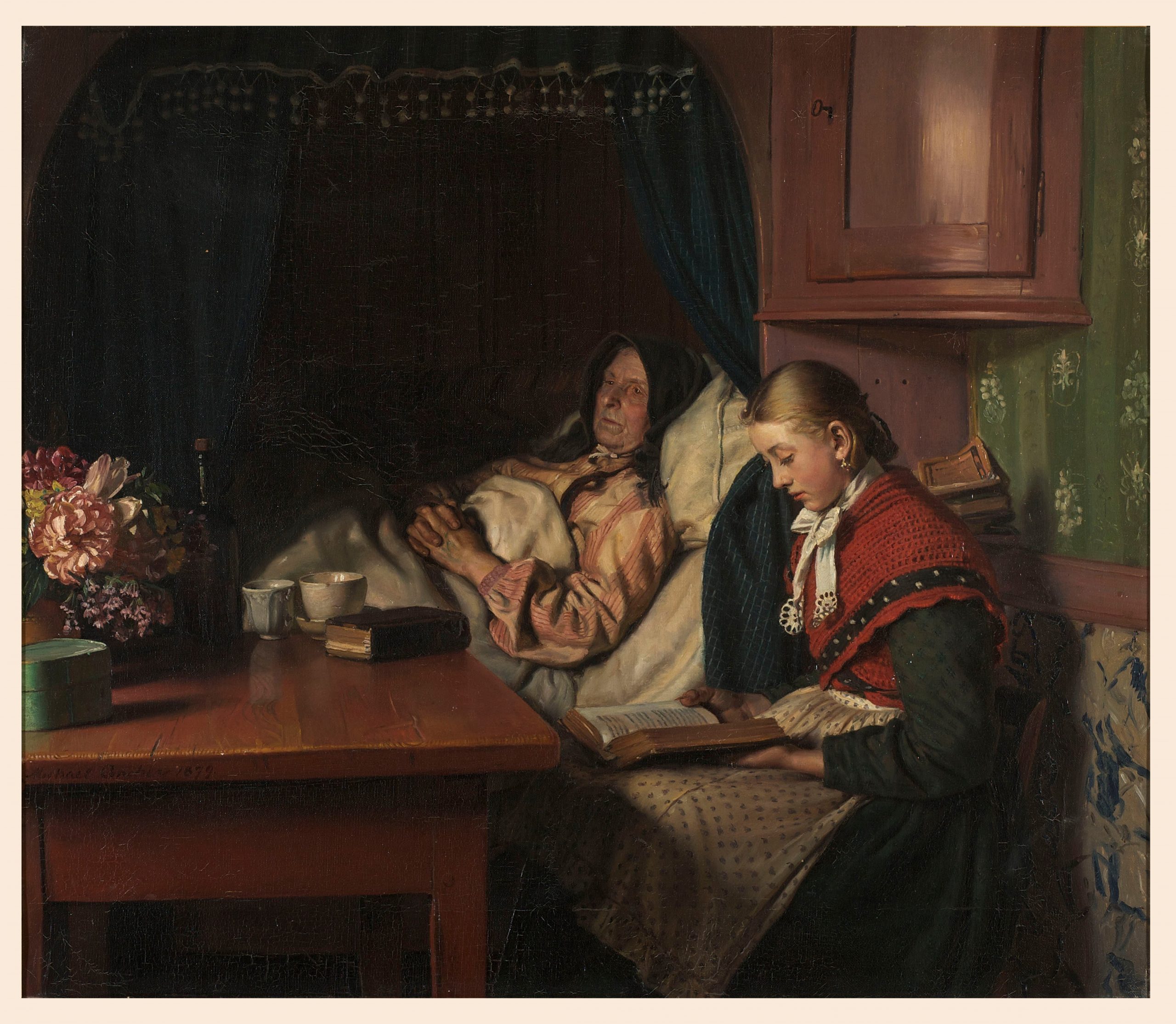By Amber Kinloch
It’s common to encounter elderly or homebound people who are distressed by their situation. They fear being a burden on others and mourn for a time when they were “useful” to society. There’s the anxious thought, too, that perhaps others will forget about them if they’re not able to participate in the normal aspects of parish life.
These are valid concerns in a society that abhors suffering and which considers human life expendable. As Catholics, though, we know that this is not the case. All life is a gift, to be treasured from the instant of conception until natural death. Besides, each person is created to do God “some definite service” as Bl. Cardinal John Henry Newman puts it. There is no such thing as a useless person, least of all regarding someone who is devoted to serving God.
What’s the role of the elderly and homebound, then? If they cannot actively partake in parish life, what can they do? As it turns out, quite a lot.
Presence
In a noisy, chaotic world where it seems everyone’s on the run and nobody makes time for God, the elderly and homebound can offer Him the irreplaceable gift of their presence. Remember the account of Mary and Martha? Who is said to have chosen the better part? It is Mary, the one who sits at Our Lord’s feet and gives Him her wholehearted attention.
This does not devalue Martha’s work. This website’s patron, St. Joseph, sanctified himself through his work. The book of Genesis, likewise, teaches us that work is a gift and a natural part of man’s life. The important thing is to imbue it with prayer so that it is oriented towards God and not a mere distraction.
That said, God desires for some souls (e.g., cloistered religious) to devote themselves completely to contemplating Him. The elderly and homebound can follow suit to a certain degree and spend more time in prayer in a way that perhaps they could not when they were young or working.
Besides, they can offer others the gift of their presence. They can write letters, call people, or offer a listening ear to those around them. This is no small gift to lonely souls or family members and caregivers tending to them. It lightens the load on everyone, and breaks the one-way cycle where the enfeebled person appears to only take things (time, energy, etc.) without giving back, much to the resentment of those around them.
Witness
Intimately bound up with the gift of presence is that of being a witness.
An elderly person might not think anything of their attendance at daily Mass. But others might draw strength from their example of fortitude. It’s one thing to get up and out the door when you’re young and fit. It’s quite another when you have to wrestle with a walker through a couple of doorways, your hips aching, your body groaning as you settle yourself down in a hard pew.
How about the fact that someone’s even still showing up at church at eighty years old? Eighty years and they’re still Catholic! That shouldn’t be taken for granted.
What of the homebound? Perhaps they have a regular hour of prayer. Or maybe they witness through their good example, eating whatever food they’re served in the nursing home or not complaining when they have to wait. A patient, cheerful soul is a tremendous gift, and people will wonder why they’re so happy.
Support
Let’s not forget the support the elderly and the homebound can offer others. Prayer is the obvious thing, but what about a bit of well earned praise, or a word of advice or encouragement to a struggling soul? Or maybe a child is not getting on well with his parents and Grandma listens and smooths out his ruffled feathers or speaks on his behalf to her son.
What about all those stories the elderly love to tell and which give perspective on things to the young? How about the wonder and delight they tend to take in the little things, just like children? What of some bedside instruction in crocheting or managing one’s finances or performing well on a job interview?
There are so many ways to love and serve others in nonphysical ways. And, funnily enough, they’re generally the more important things.
A Last Word
This article is centered on how the elderly and homebound can engage with and serve the Church here on earth. This is good and necessary. But we were not created for this life only. We’re pilgrims passing through on our way to eternal life.
Let’s none of us forget, whatever our age, Jesus’ command: “Be vigilant at all times and pray that you have the strength to escape the tribulations that are imminent and to stand before the Son of Man” (Luke 21:36).
God is the One Who gives meaning and purpose to our lives. Without Him, it’s all chaff.

Amber Kinloch
Amber writes from the bunker of her living room. There she hunkers down with her laptop and a blanket while keeping an eye and ear tuned in to the activity of family life. Music set on loop keeps her energy flowing as she muses on the deeper happenings of ordinary life and what food to restock the fridge with.






0 Comments